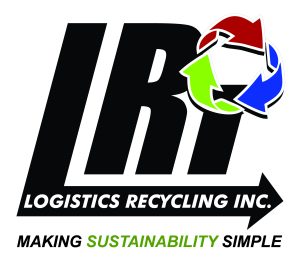Like you, we’re an Essential Business committed to Covid-19 Medical Waste Safe Handling
We are dedicated to providing quality service during this new normal.
We’ll take care of your medical waste removal needs as you take care of your patients, each and every day.
Here’s a link to a couple of our blogs that you might find of particular interest:
Coronavirus Medical Waste Update
Helpful Covid-19 Resources to Stay Safe
Email us at info@meriinc.com if you have a specific question or would like to receive our blog updates.
Below are some answers to commonly asked questions:
Will MERI Continue to Collect Our Medical Waste?
YES. We are an essential business and will continue to operate. Please let us know if your facility has any special requirements or schedule changes when we come to collect your waste.
We are proud of our team and the work they do every day. They are part of the critical infrastructure workforce to help keep this virus at bay.
In addition to collecting infectious, hazardous and universal waste, MERI will also collect blue wrap.
Read our blogs to learn more:
What Precautions Can Our Healthcare Workers Take to be Safe?
Facts to Follow When Dealing with Coronavirus
While the federal government continues to evaluate the transmissibility and severity of the COVID-19 virus, here are answers to some common questions. This list was prepared by the Healthcare Waste Institute.
What are Rules for Handling Covid-19 Infected Waste?
The disposal rules for Coivd-19 waste are the same as those for regulated medical waste.
However, now more than ever, it’s important that ONLY infectious waste go into the red bags. Also, make sure your biohazard BAGS ARE SECURELY CLOSED.
Hang these posters up by your containers:
Make sure your biohazard bag meets ASTM D1709 standard. Biohazard/liner bag specifications are: 1.5 mil thickness biohazard plastic bag that meets ASTM D 1709 and 1922: 165 grams impact resistance and 480 grams tear resistance in both parallel and perpendicular planes.
Ensure items that are put into the bag are medical waste. From time to time we find things like bed pans, titanium joints, rebar, construction debris, pumps, ventilators, hammers, steel trays, etc. in with the infectious waste. Please DO NOT do this. These items must be in separate and not in with infectious waste.
What is the Best Way to Tie a Biohazard Bag?
Please be sure to hang these posters up by your containers:
Watch this video on How to Tie a Biohazard Bag:
What Kind of Biohazard Bag Do I Use?
Make sure your biohazard bag meets ASTM D1709 standard. Biohazard/liner bag specifications are: 1.5 mil thickness biohazard plastic bag that meets ASTM D 1709 and 1922: 165 grams impact resistance and 480 grams tear resistance in both parallel and perpendicular planes.
How Long Does Coronavirus Stay on Some Surfaces?
A new study by the New England Journal of Medicine showing the lifespan of the virus outside of the body. It notes the virus can remain in aerosols for three hours; plastics and stainless steel for 48-72 hours; cardboard for less than 24 hours; and copper for less than 4 hours. No wonder it’s so contagious and so important to wipe everything down with disinfectant.
Links to Helpful Resources
Guidelines for Self-Isolation and Quarantine
Isolation and Quarantine: Definitions/Guidelines from the State of WI
Is MERI Doing Anything Differently?
We are Doing What MERI Always Done – And More!
We are following best practices for handling, transporting and treating the medical waste we collect. Here are a few of the things we do on a regular basis:
- Wash and disinfect the transport containers before they are returned to service.
- Disinfect our vehicles.
- Follow good hygiene. Wash hands and wear clean clothes.
- Ensure the waste is handled and treated according to our permits.
- Package the waste to ensure safe transportation and handling to the treatment facility.
MERI is taking extra measures to control the spread of the virus, including:
- Following access requirements our customers have in place to minimize exposure
- Wearing appropriate PPE in those areas that require it.
- Temporarily stopping the collection of blue wrap
